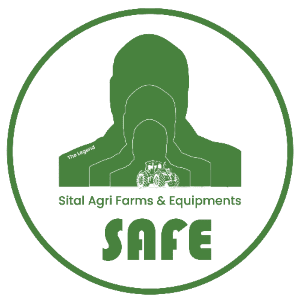Introduction
Hydraulic systems are crucial in construction equipment, ensuring smooth operation, efficiency, and durability. Choosing the right hydraulic parts can significantly impact the performance and lifespan of your machinery. In this guide, we’ll walk you through the essential factors to consider when selecting hydraulic components for construction equipment.
Understanding Hydraulic Systems
Essential Components of a Hydraulic System
A hydraulic system consists of several key components:
- Hydraulic Pump – Converts mechanical energy into hydraulic power.
- Hydraulic Cylinder – Provides linear motion and force.
- Hydraulic Motor – Converts hydraulic energy into mechanical movement.
- Hydraulic Valves – Control the flow of hydraulic fluid.
- Hydraulic Hoses and Fittings – Transport fluid within the system.
Functions of Hydraulic Parts
Each component plays a vital role in ensuring the efficiency and performance of construction equipment. Proper selection and maintenance of these parts help reduce downtime and increase operational productivity.
Types of Hydraulic Parts
- Hydraulic Pumps: Hydraulic pumps generate the necessary pressure to drive the system. Common types include gear pumps, piston pumps, and vane pumps.
- Hydraulic Cylinders: These components provide the force needed for lifting, pushing, or pulling heavy loads in construction machinery.
- Hydraulic Motors: Hydraulic motors convert fluid pressure into rotational force, driving mechanical movements in excavators, loaders, and other equipment.
- Hydraulic Valves regulate hydraulic fluid’s direction, pressure, and flow to ensure efficient operation.
- Hydraulic Hoses and Fittings: Connect all hydraulic system parts; these hoses must be durable and resistant to pressure changes.
Key Factors to Consider When Choosing Hydraulic Parts
- Compatibility with Equipment: Ensure the hydraulic parts match your machine’s specifications to avoid performance issues.
- Quality and Durability: Investing in high-quality components reduces the risk of breakdowns and extends the lifespan of your equipment.
- Efficiency and Performance: Choose parts that optimize energy usage and improve operational efficiency.
- Brand and Manufacturer Reputation: Choose reputable brands that produce reliable hydraulic components.
- Cost vs. Value: Balancing cost and performance is essential. Low-cost options may not always be the best regarding longevity and efficiency.
Common Issues with Hydraulic Parts and How to Avoid Them
Leakage Problems
- Regularly inspect hoses and seals.
- Replace worn-out parts promptly.
Overheating
- Ensure proper ventilation.
- Use the correct hydraulic fluid.
Contamination Issues
- Keep hydraulic fluid clean.
- Replace filters regularly.
Wear and Tear Prevention
- Follow manufacturer guidelines.
- Avoid excessive pressure fluctuations.
Where to Buy High-Quality Hydraulic Parts
OEM vs. Aftermarket Parts
- OEM Parts – Guaranteed compatibility and reliability.
- Aftermarket Parts – Cost-effective alternatives with varying quality levels.
Best Online Stores and Suppliers
- Safe Spares – Trusted supplier of hydraulic parts.
- Amazon & eBay – Reliable sources for aftermarket components.
- Manufacturer Websites – Direct purchase from OEM brands.
Maintenance Tips for Long-Lasting Hydraulic Parts
- Regular inspections should be conducted to identify wear and leaks.
- Use proper lubrication to minimize friction.
- Follow cleaning and storage guidelines to prevent contamination.
FAQs
Q. What are the most common hydraulic parts in construction equipment?
Ans. Hydraulic pumps, cylinders, motors, valves, and hoses are the most commonly used parts.
Q. How often should hydraulic components be replaced?
Ans. It depends on usage and maintenance, but regular inspections help determine when replacements are needed.
Q. What are the signs of failing hydraulic parts?
Ans. Common signs include slow operation, leakage, overheating, and unusual noises.
Q. Can I use aftermarket hydraulic parts instead of OEM?
Ans. Yes, but ensure they meet industry standards and match your equipment specifications.
Q. How do I maintain my hydraulic system for better performance?
Ans. Regular fluid changes, proper lubrication, and timely part replacements are crucial.
Q. Where can I find reliable hydraulic parts suppliers?
Ans. Online stores like Amazon, eBay and dedicated hydraulic parts suppliers are good options.
Conclusion
Choosing the right hydraulic parts is essential for maintaining the efficiency and longevity of your construction equipment. By considering factors such as compatibility, quality, and performance, you can ensure smooth operations and minimize downtime. Always opt for reliable suppliers and perform regular maintenance to get the most out of your hydraulic system.

